HEAT PUMP INSTALLATION BUYER'S GUIDE
Ready for an HVAC upgrade? Then you're ready for a heat pump.
Learn what to expect when adding a heat pump
with Forge — from the process and timeline to
costs and available rebates.
.png)
If you're thinking about a heat pump, here's what you should consider:
Is a heat pump right for you?
Whether or not a heat pump is right for your home depends a lot on your current heating and cooling system and what’s important to you. So let’s figure it out. If you want to:

Save money on your utility bills
A heat pump is the best choice if your current HVAC system is fueled by oil or electrical resistance (electric baseboard heat, for example). If you have natural gas, then a heat pump won’t save you money so long as the cost of natural gas is lower than the cost of electricity. But regardless of what kind of system you have, a heat pump is a no-brainer if you have solar panels: Your panels will power your heat pump, and that means a very low (or nonexistent!) heating/cooling bill.

Take advantage of Mass Save rebates
Now is the perfect time for Massachusetts homeowners to install a heat pump and benefit from the rebates and tax credits that come along with making your home more energy efficient. Mass Save™ offers cash rebates of up to $8,500 for switching to a heat pump. They also offer 0% financing options.

Get year-round comfort
Heat pumps are an all-in-one solution for heating and cooling. They are a great choice if you’re ready to swap your window ACs for central air while also upgrading your heat. You can either upgrade your entire heating and cooling system or keep your current heating system and add cooling with a heat pump.

Lower your climate impact
A heat pump is right for you regardless of your current HVAC system. Once they’re widely adopted, heat pumps will be our #1 weapon in the fight against climate change — they use less energy than fossil fuel-based systems and have the potential to be powered by renewable energy sources.

Replace an aging HVAC system
A heat pump is almost always the best choice if your current system is broken, on its last legs, or is 10 years old or older. Thanks to the heat pump rebates from the Sponsors of Mass Save™, upgrading your system is often more cost-effective than continuing to repair an older system.

Improve indoor air quality
A heat pump results in healthier air than gas- or oil-run systems for many reasons: You’re not burning fossil fuels and polluting your air with combustion byproducts; the filters remove dust, pollen, smoke, and other impurities; and you can even find models that let you control humidity levels.
What kind of heat pump is best for your home?
Whether you have a single room you want to make more comfortable or a large house with legacy HVAC systems you’d like to upgrade, we’ll design the ideal heat pump setup for your home. There are a few different kinds.



Ducted
If your home is heated by an oil- or gas-powered furnace that blows warm air out of vents around your house, then you have what’s called ductwork. And if you have ductwork, then a ducted heat pump system is probably best for your home. In these systems, an air handler takes the heated or cooled air from the heat pump and blows it into the ducts and, ultimately, your rooms. (If you’re not sure and your basement is unfinished, then go down there and look up — if you see box-shaped metal tubes that attach to your furnace, then you have ductwork.)

Ductless
If you don’t have existing ductwork or your ducts are in rough shape, no problem. Some of the most popular heat pumps are ductless systems called mini-splits. This is a great option for multi-family houses, smaller houses, older houses, and those who want to add air conditioning to their existing heating system. They’re also a great option if you have an oil boiler that heats your home via baseboards.

Hybrid
Sometimes the best system for a homeowner combines ducted and ductless heat pumps in a hybrid approach. Thanks to the flexible modularity of these fantastic machines, if that’s what would work best for your home and your needs, that’s what Forge will deliver.

Dual Fuel
For many homes, the right fit pairs an electric heat pump with a high-efficiency furnace (or boiler) in a dual-fuel setup. The heat pump delivers efficient, everyday heating and cooling; the furnace offers optional backup based on homeowner preferences. If that mix suits your home and comfort goals, Forge will design and deliver it.
How do you pick a heat pump installer?
Heat pumps need to be properly designed and installed to operate at maximum efficiency. Make sure you are working with an installer that offers multiple brands, does an ACCA-approved Manual J to size your system, and visits your home at some point in the process. Here’s what sets us apart at Forge:

Quality
Quality system design and installation are essential for your heat pump project, and at Forge, heat pumps are our specialty. Our in-house trained team has decades of experience designing and installing systems for single and multi-family homes. Unlike companies that rely on subcontractors, all of our heat pump installers and electricians are employed by Forge — allowing us to maintain quality control, eliminate unnecessary markups, and deliver the best value for your investment. Before installation, we always conduct an on-site visit and perform ACCA-approved Manual J and Manual D calculations to ensure your system is correctly sized and scoped for maximum efficiency and comfort.
.png)

Value
As a Mass Save-approved heat pump installer, we offer eligible homeowners instant Mass Save rebates, reducing your upfront cost and eliminating the hassle of rebate paperwork. Plus, most Forge customers can finance their project through a Mass Save HEAT Loan, taking advantage of 0% financing to spread costs over time without added interest.
.png)

Customer experience
If you’ve had major work done on any of your home’s systems, you know how stressful it can be. Well, not with Forge. We’ll answer all your questions, handle all the scheduling, deal with the permits and Mass Save, and keep you in the loop at all times. And for even greater peace of mind, Forge provides an extended labor and equipment warranty, ensuring your system is protected for years to come. Click here to learn more about our warranty plans.
.png)

Equipment Standards
We install cold-climate heat pumps because they’re built to perform reliably in New England’s harsh winters. Unlike standard systems, cold-climate models are engineered to maintain efficiency and deliver consistent heat even when outdoor temperatures drop well below freezing. By focusing on cold-climate technology, we ensure every installation is not only efficient and sustainable, but also resilient enough to handle the demands of Massachusetts homes

Here’s what our customers say about Forge.
What should you expect from the process?
When you work with Forge, we do all the work – from educating you on the options for your home, to securing the permits, to the final heat pump installation. Our extensive and unrivaled experience enables us to work quickly and diligently so you can start enjoying your new HVAC system ASAP. Here's what we do:
STEP 1
Learn about your home
We’ll start by learning about your home, current HVAC system, and comfort goals. Depending on the size of your home and your preference, one of our Home Comfort Advisors will conduct either a virtual or in-person visit. To size your system correctly, we perform an ACCA-approved Manual J (and Manual D for a ducted heat pump system), along with an electrical load calculation. We also determine you're eligible for Mass Save™ rebates.
STEP 2
Scope your project
We take all of the information we collected about your home and do an initial scope of your project. This scope includes the type of heat pump system we recommend, details of the work we'll do, and a quote.
STEP 3
Design your system
Our expert team of HVAC and electrical designers will design your system. Based on the Manual J, we complete a Manual S to select the right equipment, making sure it’s properly matched to your home’s requirements — not oversized or undersized. For ducted systems, we also perform a Manual D duct design, which balances airflow room by room. Any ductwork layouts we create are drawn directly from this Manual D process, giving you even, consistent temperatures throughout your home without hot or cold spots.
STEP 5
Install your system
Next, we open permits and schedule your project. The average heat pump installation takes 4-5 days, but every home is different so there are many exceptions to that. If your system is super simple, it could take as few as 1-2 days. If it's larger or more complex, the install could take 2 weeks or more. We'll set your expectations ahead of time and work with your schedule.
STEP 7
Ongoing service and maintenance
Your heat pump is a long-term investment, and we’re here to help you protect it. Forge offers ongoing service check-ups and maintenance to keep your system running efficiently, season after season. From routine inspections to performance tune-ups, our in-house heat pump experts are here to make sure your system keeps your home comfortable for years to come. Click here to learn more about our warranty plans.
STEP 4
Rebates and 0% financing
At Forge, we handle the rebate process for you. We check your eligibility for a Mass Save™ rebate and apply it upfront, so your savings are built into the cost right away — no waiting. We also guide you through the 0% Mass Save HEAT Loan process to maximize your benefits. If you’re not eligible for Mass Save, we’ll help determine whether your town offers municipal rebates you can take advantage of.
STEP 6
Project completion and warranty set up
When your installation is complete, we'll register all installed equipment with the manufacturer to ensure you get the full equipment warranty, schedule a final inspection with your town/city, and close out any open permits. With Forge, you don’t have to handle all the extra coordinating and paperwork that comes along with permits.
Who you'll be working with:
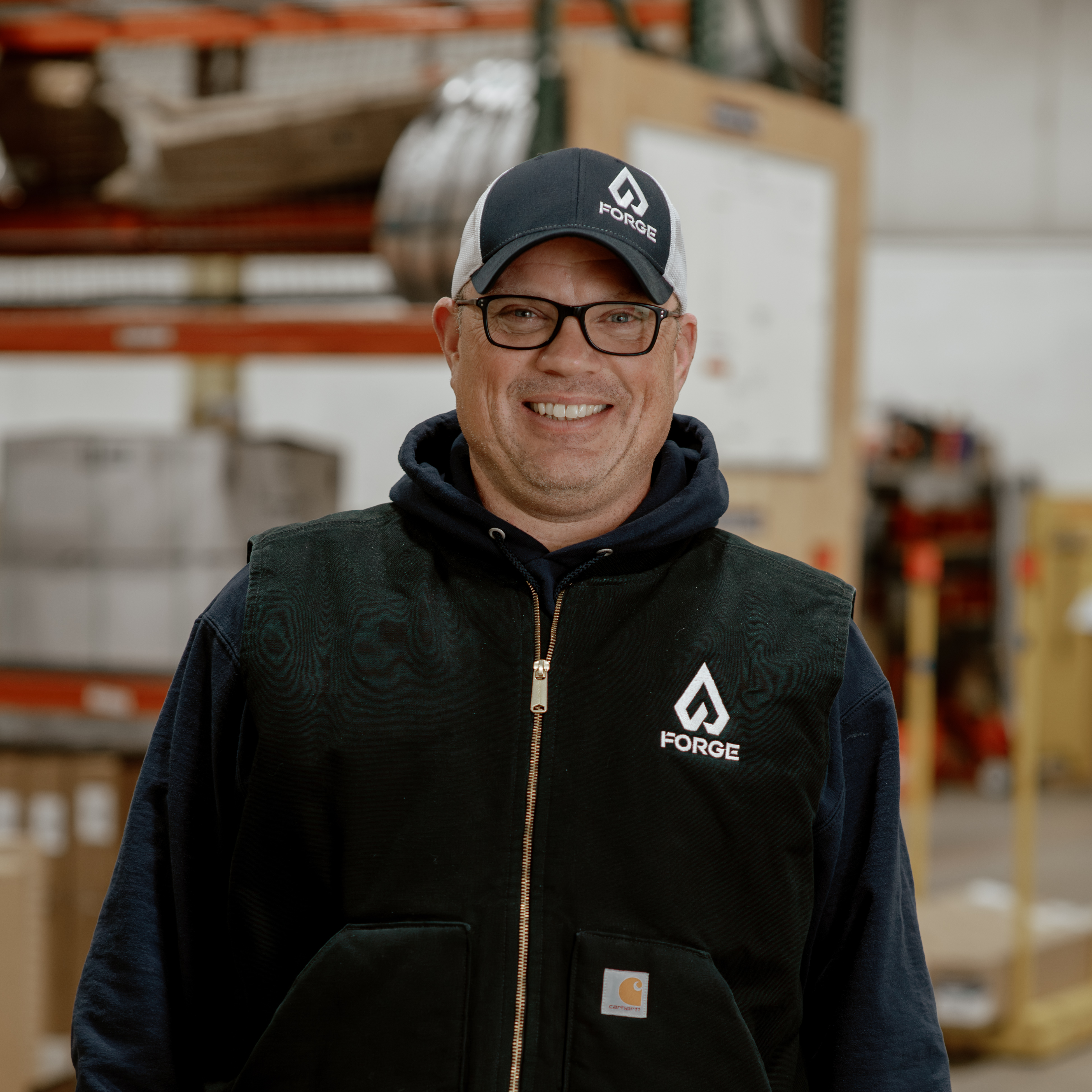
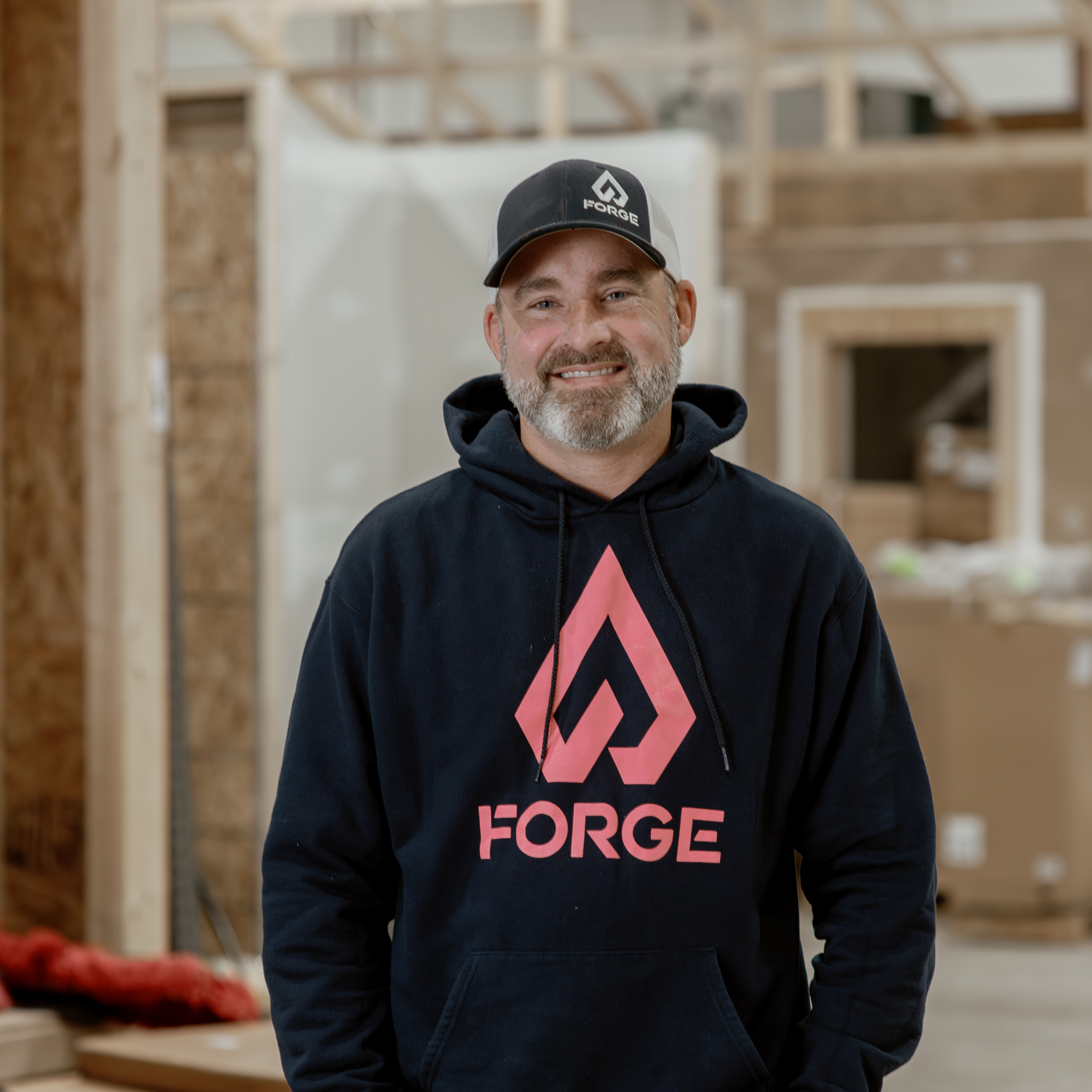


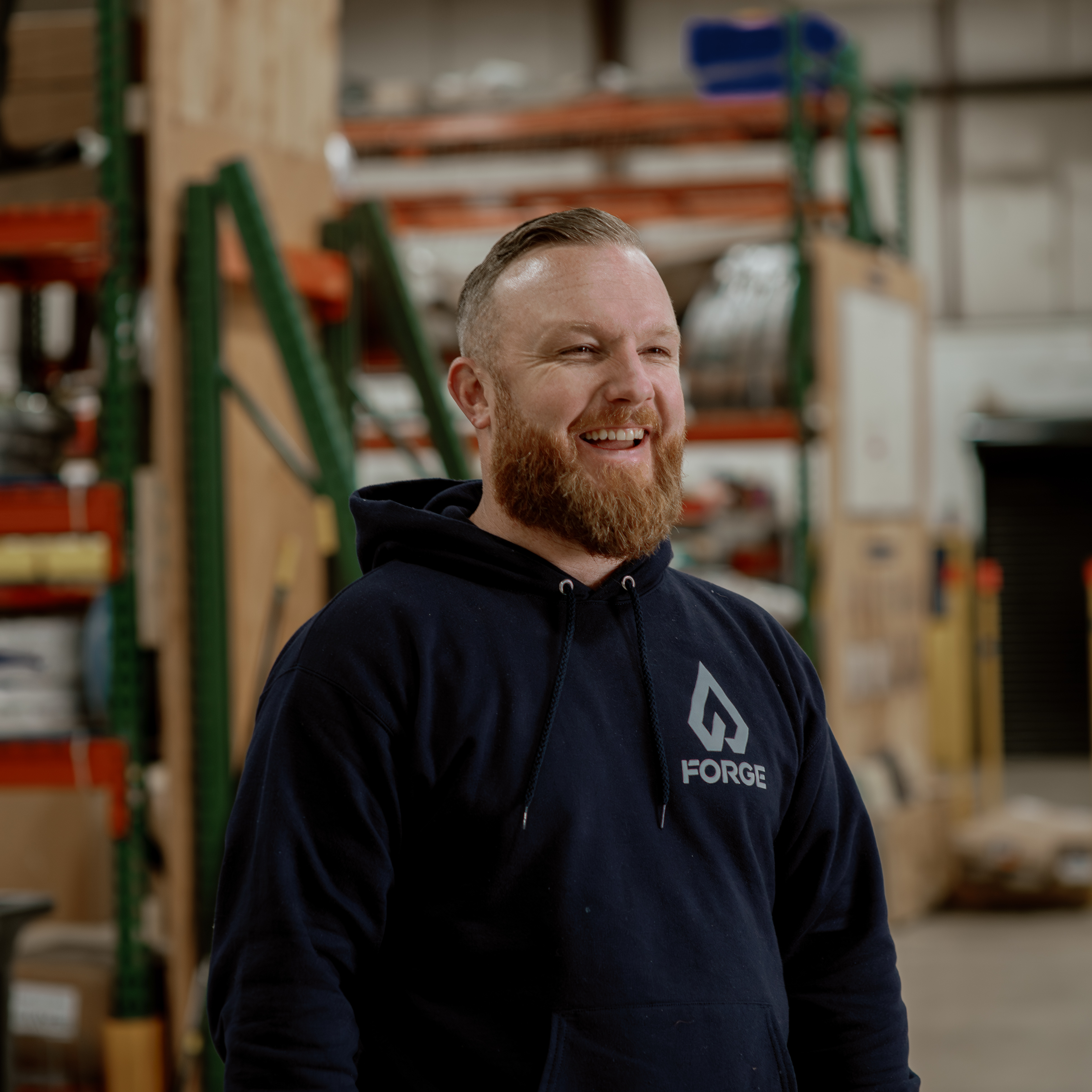
.png)
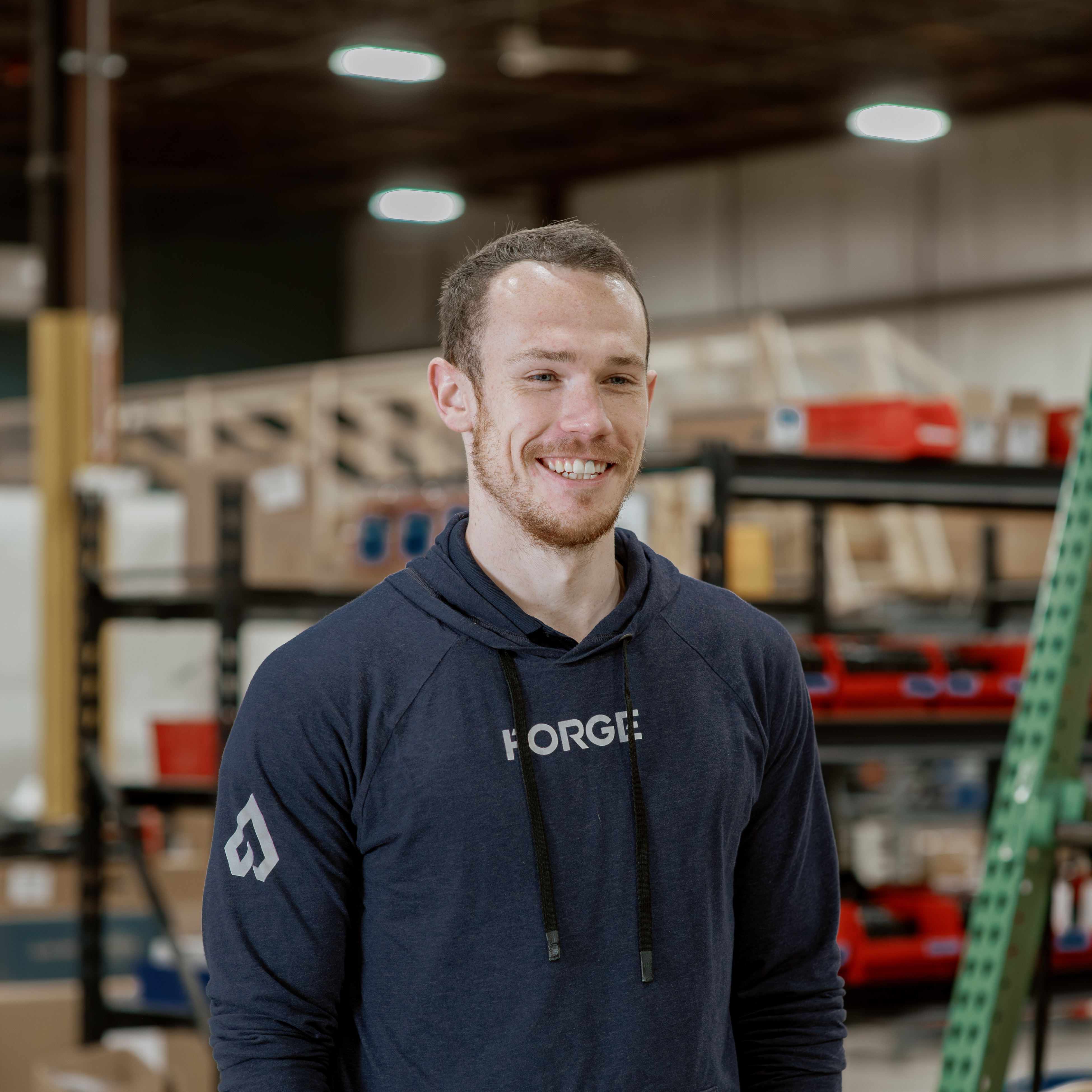
.png)
.png)
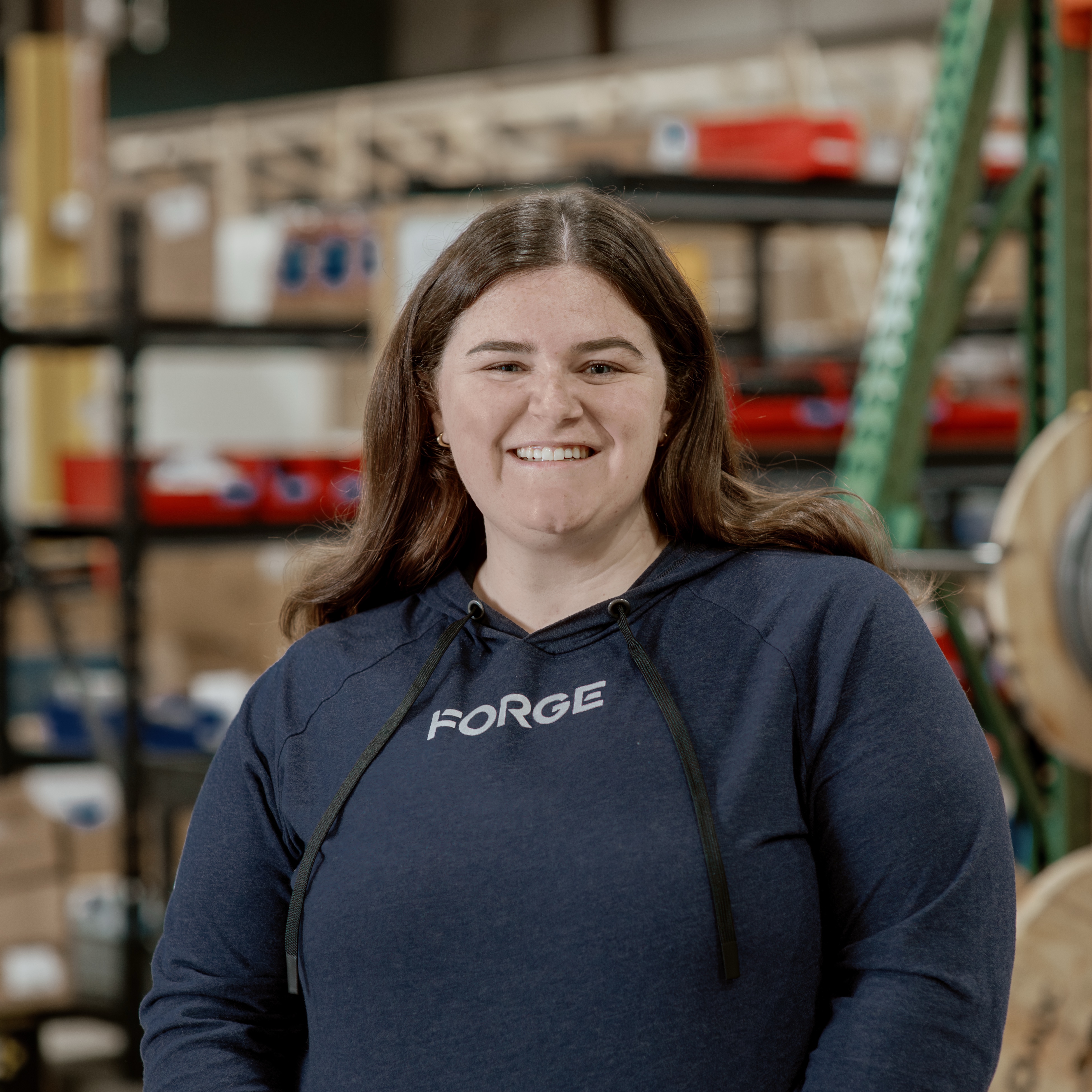
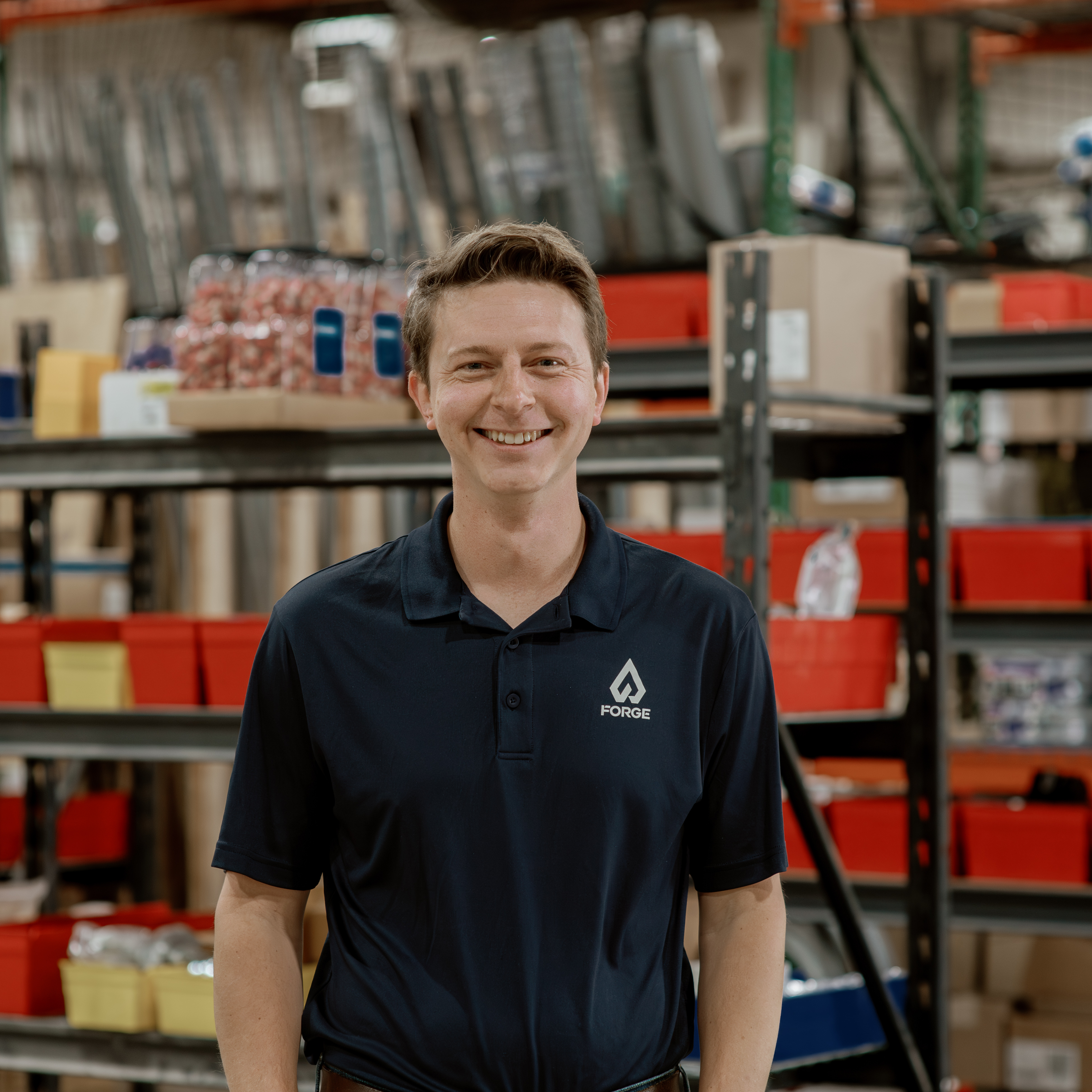
.png)

.png)



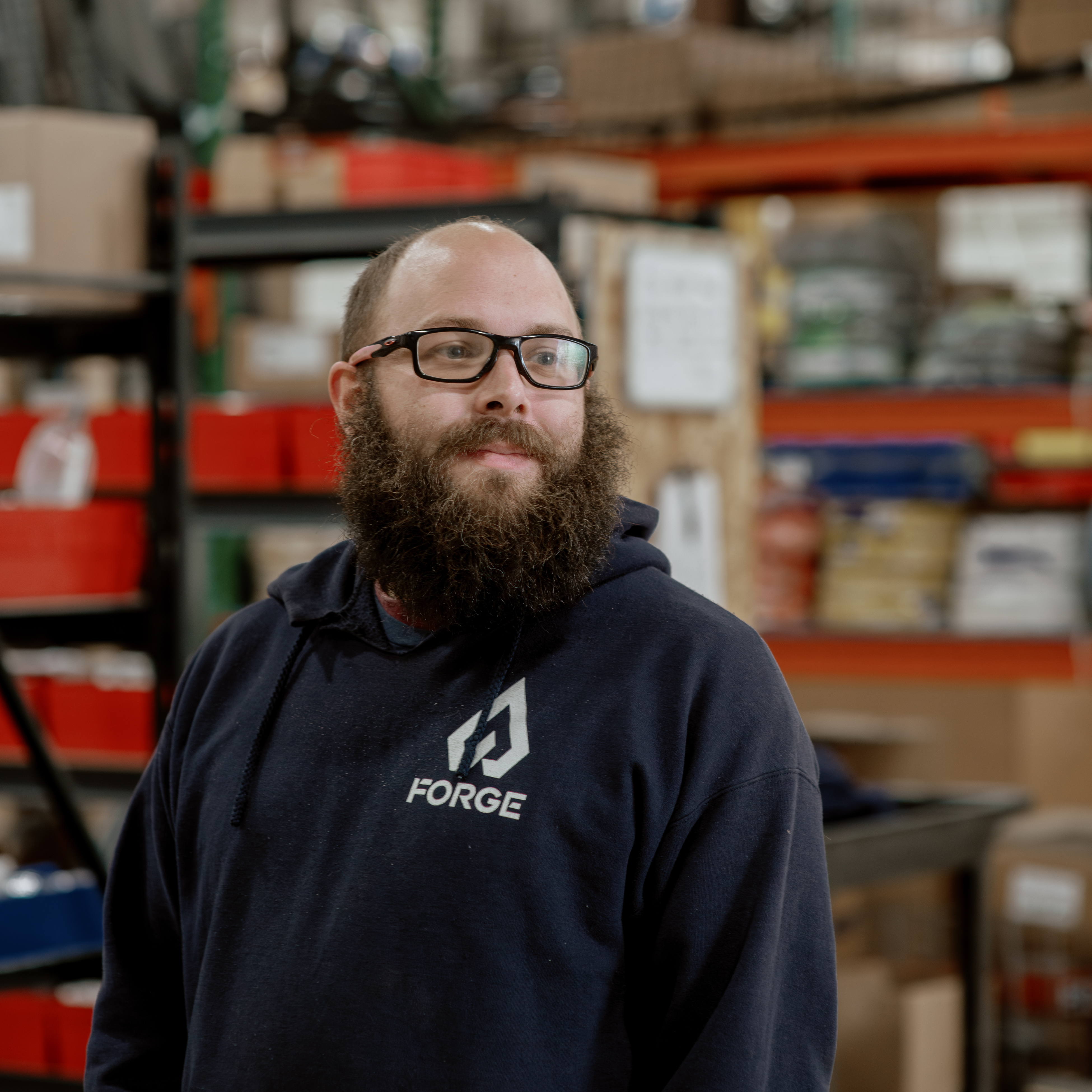



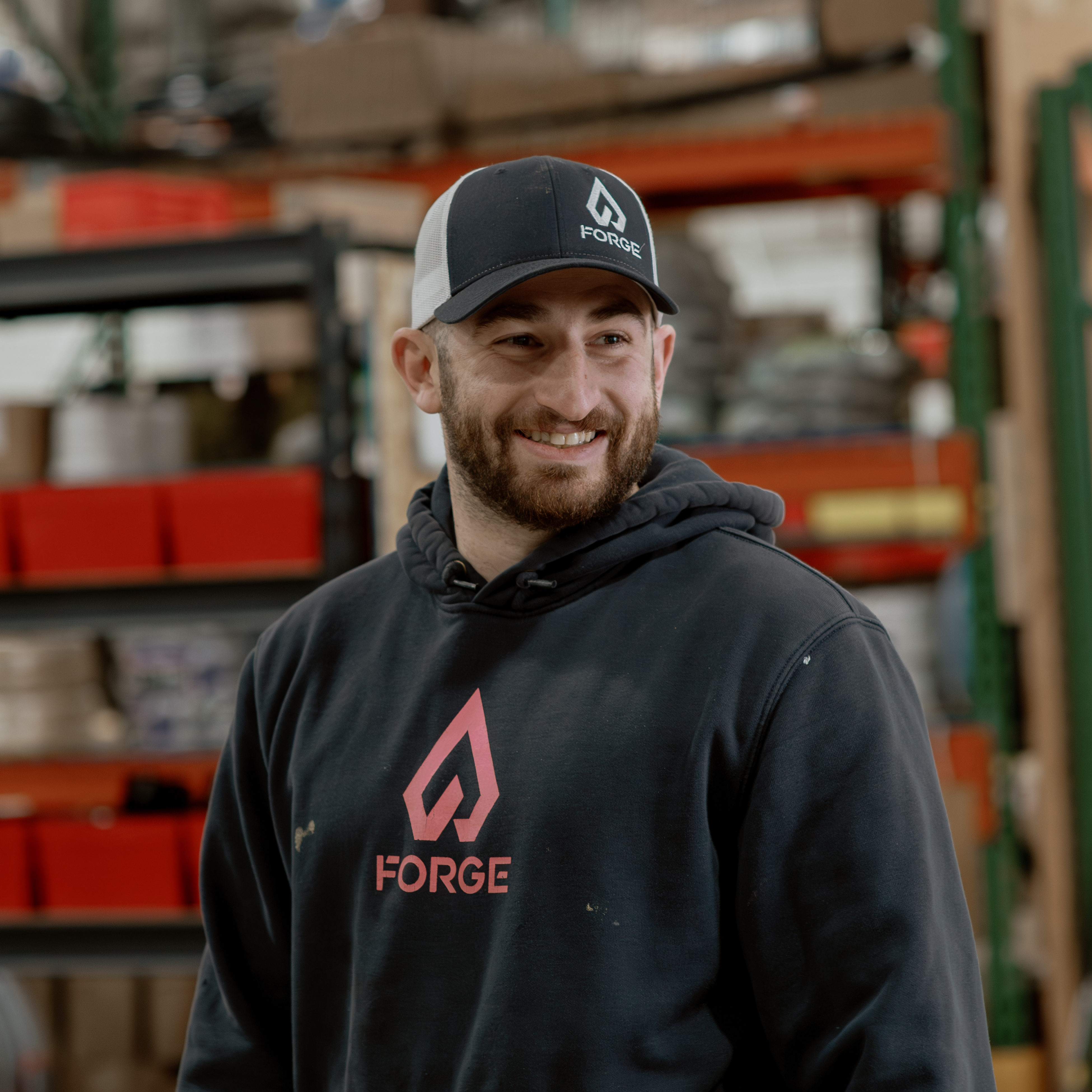



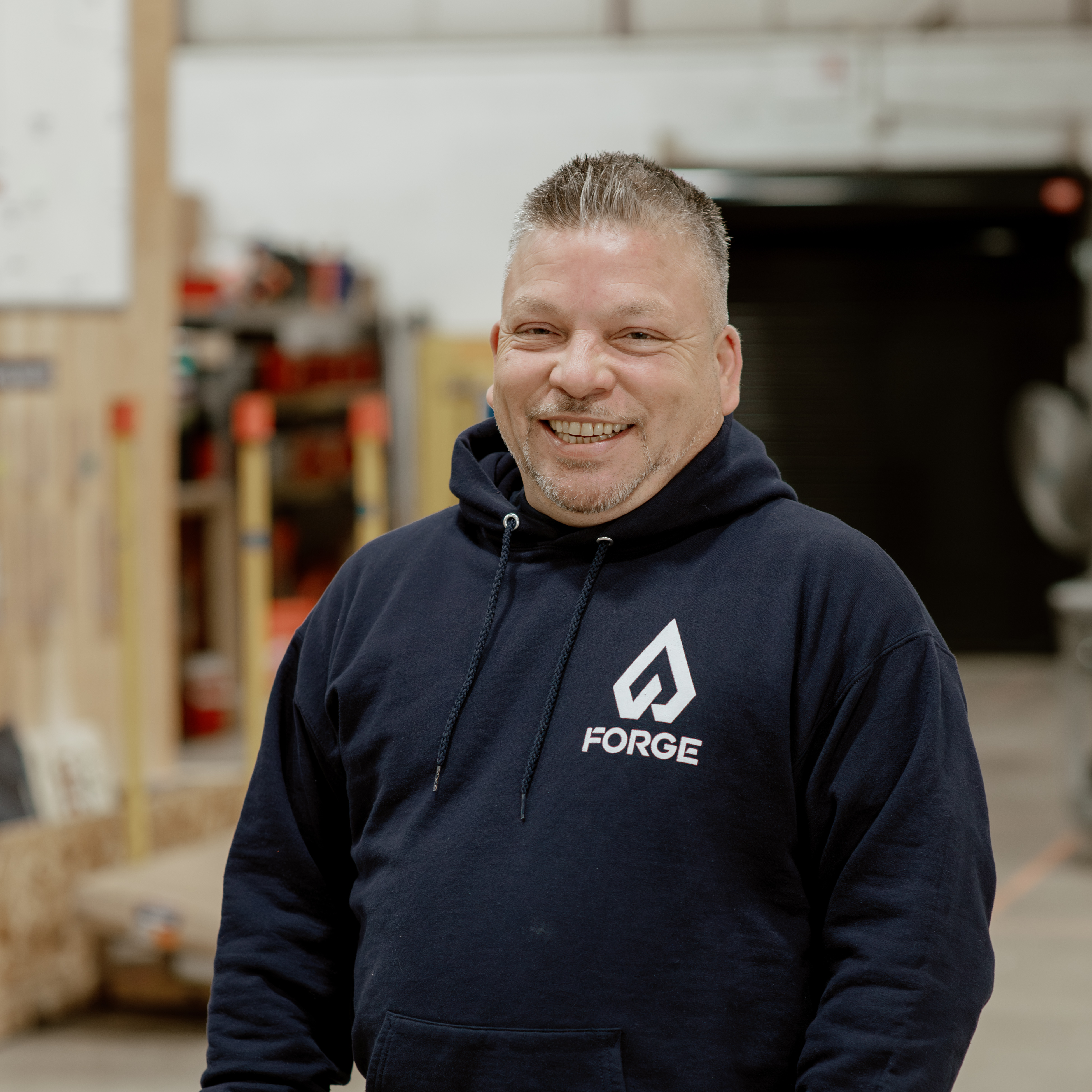
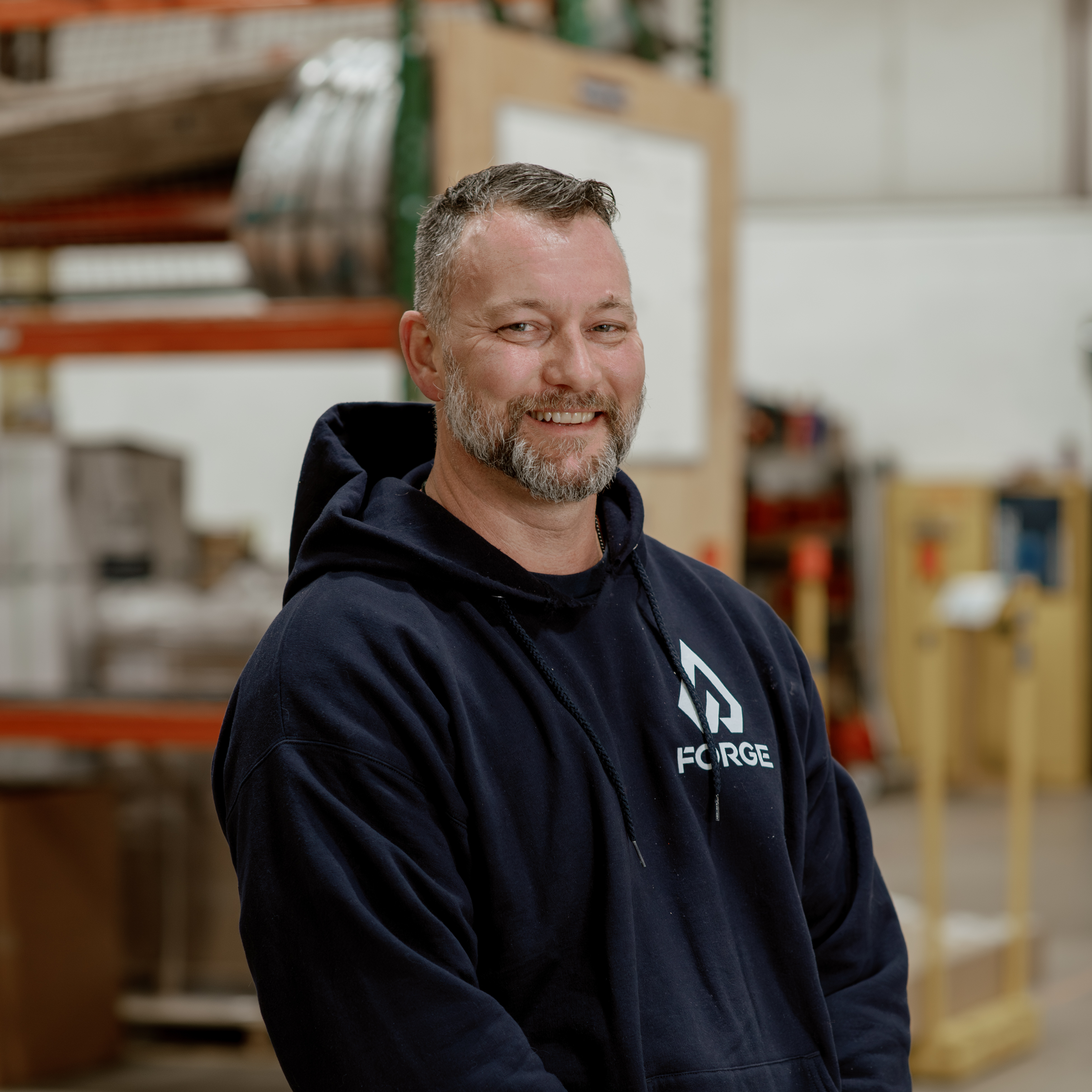

Our Massachusetts service area

Don’t see your town listed? No worries — just get in touch with us using the form below for the very latest news on our ever-expanding service area.

Get in touch.
Need a new HVAC system? Ready to upgrade to a heat pump? Want a quote? Not sure what you need but want to learn more about working with Forge? Whatever your question, the answer is just a simple form away. We look forward to hearing from you.
Contact form
Frequently asked questions. And answers.
Your installation includes everything needed to get your system up and running:
- System design & equipment selection tailored to your home
- Professional installation of indoor and outdoor units
- Electrical work to power your system safely
- Startup testing & quality checks to confirm performance
- Rebate support — we front the Mass Save rebate on your behalf and guide you through municipal rebate programs to make sure you maximize available savings
We handle the entire process from start to finish — planning and permitting through installation and customer support — so you can enjoy a stress-free upgrade to clean, efficient comfort.
Yes — at Forge, we install cold-climate heat pumps. These systems are designed to work efficiently in New England winters, delivering reliable heat even when outdoor temperatures drop well below freezing. That means you can count on year-round comfort without relying on fossil fuels.
Most heat pump installations take 2–5 days, depending on the size of your home and the complexity of the system. Smaller ductless projects may be completed in just a couple of days, while larger, whole-home or ducted systems can take closer to a week. Before we begin, we’ll provide you with a clear schedule so you know exactly what to expect.
A heat pump is a highly efficient system that both heats and cools your home. In summer, it moves heat out of your home. In winter, it does the opposite — pulling heat from outside air (even cold air!) and bringing it indoors.
Yes! Modern cold-climate heat pumps are designed to perform very well in New England winters. They can heat your home even when temperatures drop below freezing.
In most cases, yes. A properly sized and installed heat pump system can fully replace oil, gas, or electric baseboard heat, and also replace your window or central AC system.
They can, depending on your current fuel type, and the time of the year. Because heat pumps move heat rather than generate it, they’re 3–4 times more efficient than traditional fossil-fuel systems. That can mean lower utility bills during certain seasons, especially if you’re switching from oil, propane, or electric resistance heat.
In Massachusetts, your project may qualify for Mass Save™ rebates of up to $10,000 for installing a heat pump, plus 0% financing through the Mass Save HEAT Loan.
A well-maintained heat pump typically lasts 15–20 years, similar to or longer than a furnace or central AC system.
Ducted heat pumps use hidden ducts like traditional fossil-fuel systems. Ductless heat pumps (“mini-splits”) use sleek wall-mounted indoor units — great for homes without existing ductwork or for adding comfort to specific areas.
Not really! Most installs take just 2–4 days, and a professional team (like Forge!) will walk you through the plan and minimize disruption to your home.
If you install a high-efficiency heat pump in Massachusetts, you can get up to $8,500 back in rebates. Rebates are based on whether your heat pump system will serve the whole home or a partial home. Whole-home rebates are available to customers who install heat pumps as their sole source of heating and cooling. Partial-home rebates are offered to customers who plan to keep an existing boiler or furnace in place to supplement a new heat pump system. For more information about rebates and incentives, visit the Mass Save™ website.
